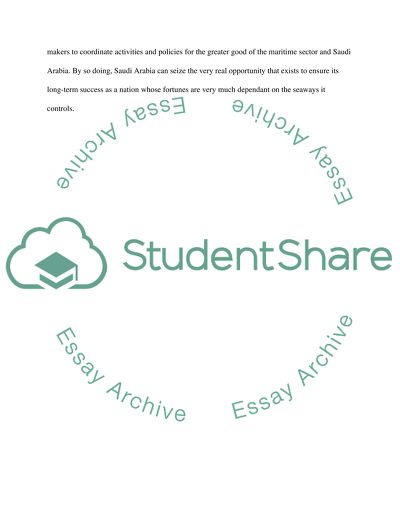Cite this document
(“THE DEVELOPMENT OF A HOLISTIC NATIONAL MARITIME POLICY FOR SAUDI Essay”, n.d.)
THE DEVELOPMENT OF A HOLISTIC NATIONAL MARITIME POLICY FOR SAUDI Essay. Retrieved from https://studentshare.org/miscellaneous/1507589-the-development-of-a-holistic-national-maritime-policy-for-saudi-arabia
THE DEVELOPMENT OF A HOLISTIC NATIONAL MARITIME POLICY FOR SAUDI Essay. Retrieved from https://studentshare.org/miscellaneous/1507589-the-development-of-a-holistic-national-maritime-policy-for-saudi-arabia
(THE DEVELOPMENT OF A HOLISTIC NATIONAL MARITIME POLICY FOR SAUDI Essay)
THE DEVELOPMENT OF A HOLISTIC NATIONAL MARITIME POLICY FOR SAUDI Essay. https://studentshare.org/miscellaneous/1507589-the-development-of-a-holistic-national-maritime-policy-for-saudi-arabia.
THE DEVELOPMENT OF A HOLISTIC NATIONAL MARITIME POLICY FOR SAUDI Essay. https://studentshare.org/miscellaneous/1507589-the-development-of-a-holistic-national-maritime-policy-for-saudi-arabia.
“THE DEVELOPMENT OF A HOLISTIC NATIONAL MARITIME POLICY FOR SAUDI Essay”, n.d. https://studentshare.org/miscellaneous/1507589-the-development-of-a-holistic-national-maritime-policy-for-saudi-arabia.


